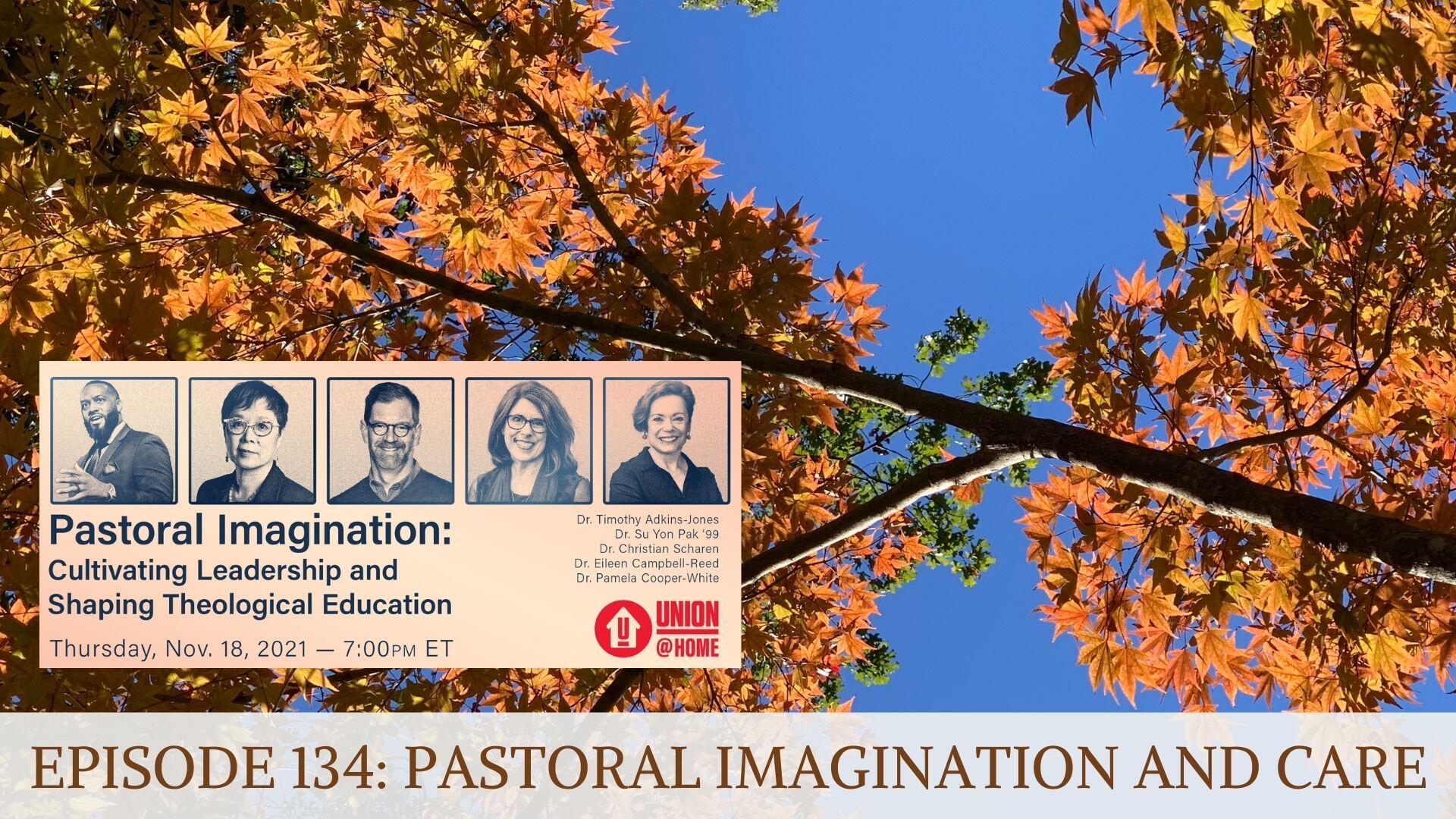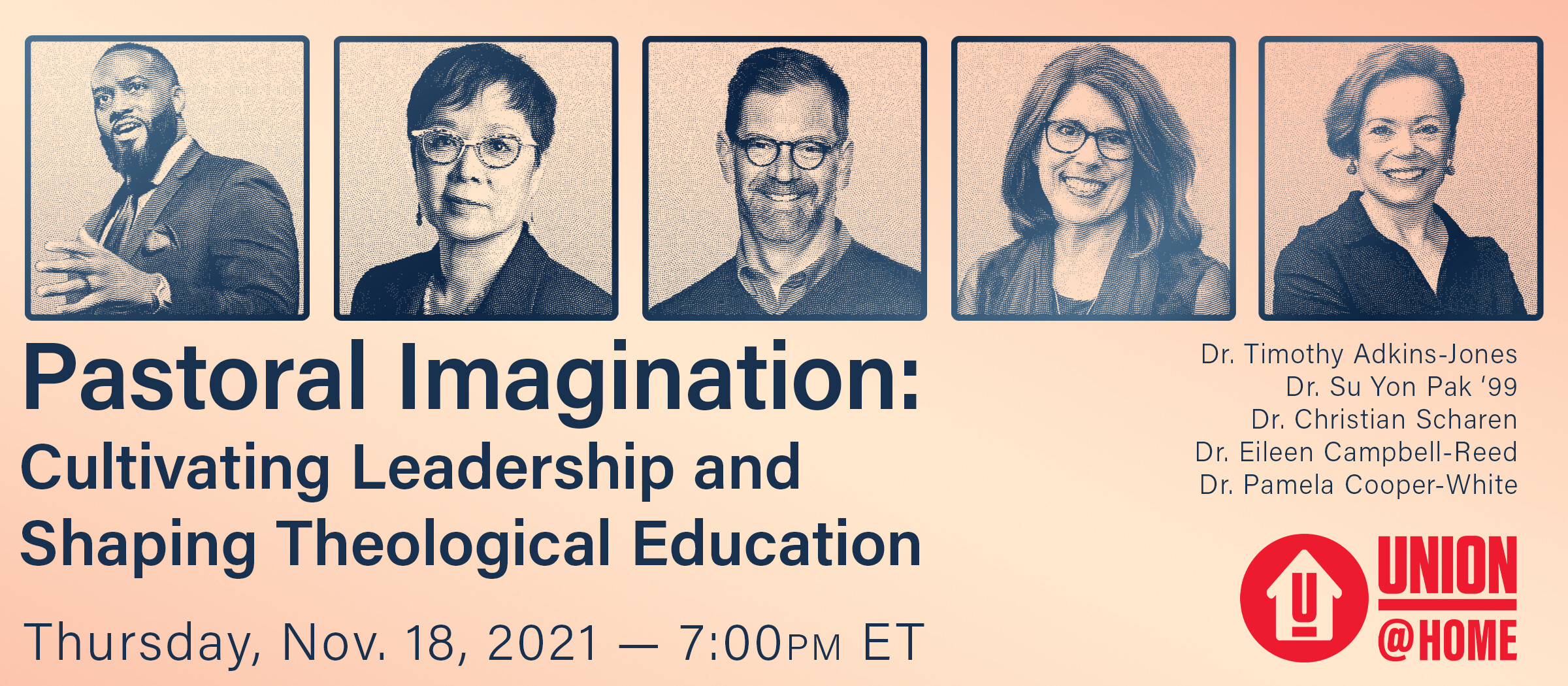What do pastoral imagination and pastoral care have to do with each other? I’ve been working on that question for a dozen years. And recently I received a question from a friend that inspired me to articulate the relationship between these concepts. In these challenging days of congregational life, clarity on these ideas seems useful and timely.
A Question
The question came from a friend and colleague in pastoral theology. Rev. Dr. Rick Mixon who is an American Baptist minister and pastor of an Alliance of Baptists church. He asked me, If you were to list essential competencies in the field of pastoral/congregational care and counseling, what might you include?
Along with preaching and worship, teaching and spiritual formation, administration and supervision, pastoral care is one of the main tasks of the pastoral life. And for ministers serving in places beyond the congregation, pastoral or spiritual care is crucial for leadership.
For a decade now, I’ve been teaching seminarians basic skills, approaches, and theologies for care. I cannot teach them everything or prepare them for all situations. However, I can introduce key components of care and set them on a solid pathway. Because most of what can be learned about pastoral care can only be learned in the flow and practice of it.
You can’t really know what you’ll do when someone dies unexpectedly or there’s a major crisis in your community or family loses their home in a fire until you live through it and the people look to you for guidance and care.
What is on your list of essential competencies in the area of pastoral/congregational care?
Question from our friend, pastor and professor Rick Mixon. Let's help him out…
— Three Minute Ministry Mentor (@3MinuteMin) November 7, 2021
A Response
For the last dozen years my research and thinking center on the broader question of what makes for learning ministry as a practice. So while I can and will offer a list of competencies about pastoral and congregational care, I’m equally interested in teaching people to understand of the process of learning. I want to nurture students to embody a robust pastoral imagination that utilizes the skills of pastoral care as well as many other aspects of religious/ministerial leadership.
That process is something I outline in my new book Pastoral Imagination: Bringing the Practice of Ministry to Life. In the book we consider how one learns in practice over time with multiple facets or perspectives on that learning. Why should we leave learning to simple trial and error? Such learning is of course required. However, it does not need to be the only pathway. Thus, the book envisions ways that people can cultivate the capacity for pastoral imagination through observing, reading and trying on the work. Then I point them to the value of integrating skill, knowledge, and spiritual presence.
Other key moments in learning the subtle and complex practice of ministry include:
- self reflection
- taking risk and responsibility for one’s actions
- seeking out feedback and mentoring for one’s learning
- navigating important moments like conflict and brick walls
- coming to see situations with greater salience
- learning to improvise when one is pulled up short,
- practicing enough until the knowing becomes sedimented in one’s body, thinking, and action.
These are a few of the highlights of the process that unfold over many years. They follow the basic contours of adult human learning. This kind of learning is central to complex practices like a ministry or the specific area of ministry we call pastoral care.
Competencies of Care
- learning what it means to do no harm, yet becoming a witness to the experiences of people in one’s care;
- listening well and with empathy, compassion, and a sense of self limits (knowing when to refer);
- accompanying people in their losses, life challenges, and celebrations in ways that empower and bear witness;
- advocating for justice in situations where care alone is not enough to address the situation;
- dexterity for engaging rituals of one’s faith tradition as responses of care and justice;
- educating and empowering congregations for their participation in mutual caregiving.
In the Learning Pastoral Imagination Project we define pastoral imagination as the embodied, relational, emotional, spiritual and integrated capacity for seeing a situation in all of its complex and holy depths and having the capacity to make a fitting and wise response.
In reality most ministers, chaplains, nonprofit leaders, pastors, and religious leaders in various traditions step into situations that are open-ended and under-defined. They must make countless decisions in the moment. Many times each day. And the best we can do in theological education is to equip them to be ready. Because of the open-ended and improvisational character of ministry and life, means we cannot predict all they will face. But we can prepare them with skills to lead, and a capacity to respond pastorally in each new situation.
Join a Conversation about Pastoral Imagination on November 18

R E G I S T R A T I O N L I N K
What is pastoral imagination and why do ministers and theological educators need it right now? Pastoral imagination is an embodied, relational, spiritual, and integrative practical wisdom. It is a capacity needed by religious leaders so they can see a situation in all its complexity and holy depths and make fitting and wise responses.
Whether you are leading a community of faith or people protesting in the streets, holding the hand of a dying person, leading worship in an overcrowded prison, or praying with a traumatized soldier, how you see and respond to the situation can make the difference between life and death. Thus, it is urgent for ministers to know how to embody and cultivate pastoral imagination over time. And theological educators need to orient their teaching so that ministers learn how to face the complex challenges of the present pandemic world that is (rather than the one that used to be).
The Learning Pastoral Imagination Project is a national, ecumenical, and longitudinal study of ministry now in its twelfth year. Through interviews and observations, the LPI study carefully investigates how Christian pastors, chaplains, educators, and activists cultivate pastoral imagination. The study’s findings have important implications for ministry leaders, congregations, and theological educators.
This event’s panel will be a conversation about how ministers can embody and educators can cultivate pastoral imagination. Panelists will address how pastoral imagination relates to pastoring, preaching, chaplaincy, field education, pastoral care, and religious leadership. They will also consider how the LPI Project findings may open a conversation with leaders of a wide range of religious traditions.





